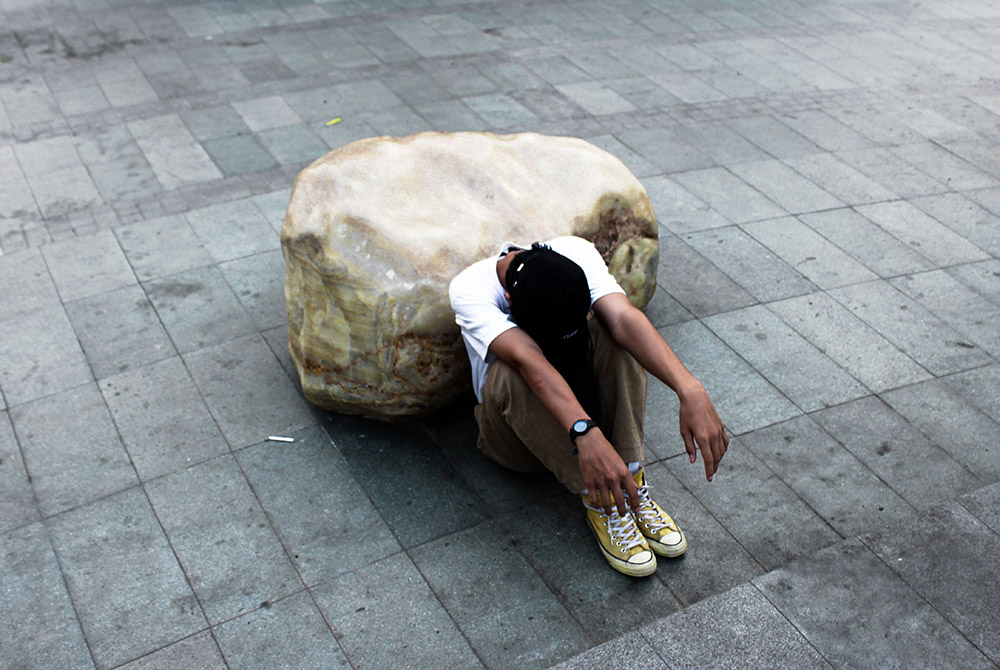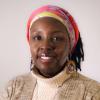
(Unsplash/Tusik Only)
People are despairing. Is it all because of the heightened, more visible racism and discrimination? The effects of the pandemic? Are these feelings that we're experiencing a result of the past year, or the sum total of our lifetimes finally boiling over? These have been my thoughts in recent days.
Many people who had been managing just fine for many years, with steady jobs, some disposable income, social activities to fill their time, a host of essential workers including teachers and day care staff to help in child rearing and caring, medical insurance to access health care, and a certain level of predictability to their daily lives and their foreseeable futures —in short, people living the American Dream — have found themselves in a collective nightmare. Some are realizing for the first time that the dream is an illusion, a continuously shifting mirage that eludes all but the 1 percenters.
While the pandemic was a highly unusual and unpredictable event for most of us, the violence of prejudice, bias and oppression have been around for eons. However, our usual distractions, or rather the tedium of the rat race, changed their usual cadence. That, coupled with ever increasing technology use, meant that we could no longer ignore the anti-Black violence of last year.
For me, 2020 did not get off to a good start, and by the time the shutdown rolled around, I was thinking, "What else could possibly go wrong?" Little did I know that a Black man — George Floyd, 46 — soon was going to be murdered in the most brutal way, triggering protests across the United States and around the world. As we watched the last 8 minutes and 46 seconds of his life play out on social media, captured on video by a very brave young lady, the story of the murder of 26-year-old Breonna Taylor became better known. We also found out that in Glynn Country, Georgia, 25-year-old Ahmaud Arbery had been pursued and murdered, and even more shocking, it took months for the authorities to make arrests in his case.
People were already feeling the stresses of the pandemic restrictions. Many had started working from home. We knew we lacked personal protective equipment for medical and essential workers. Many had lost their jobs, and the absence of the things we'd taken for granted for so long became a constant source of irritation, loss, sadness, anger, nostalgia and grief.
The social distancing, a necessary precaution, isolated us, forcing us to process many of these emotions on our own. I am blessed to live in community, but I personally found it hard to vent or share my feelings; there was a tacit acknowledgement that everyone was going through a hard time in one way or the other. But as we looked to a completely uncertain and unpredictable future, many of us started struggling with our emotional and mental health.
Insomnia arrived and set up camp in my body. Melatonin and stronger sleep aids didn't do the trick. I would find myself completely fatigued and exhausted, but still wide awake 36 hours later. My experiences aren't unique. There are many reports of rising cases of depression, anxiety and suicidal ideation all over the world. The heart palpitations I was starting to experience, the restlessness and difficulty in concentrating, the constant fatigue and insomnia were all signs of anxiety — a very new and unsettling kind of anxiety, caused by the feeling that our safety and security had been stripped away.
But as a Black woman I am coping with additional trauma. Over the last year, I've found myself spending a lot of time involuntarily remembering incidents of racism, overt and subtle, that I had experienced in my life, and wondering why I just couldn't deal with it anymore. After all, what was many white people's "awakening" was what most Black and brown people already knew and lived with daily.
Yesterday, a friend who is also a collaborator in ministry shared with me his struggles balancing the demands of his life and the feelings of guilt and despondence that were engulfing him, and I realized that we are all in need of healing. Not from the effects of the past year, but of a lifetime of unnatural living. A lifetime of believing that our value as person is a result of our hard work and effort and efficiency and effectiveness. A lifetime of being so focused on this untenable prize of personal success that we developed blinders to the numerous needs of those around us. A lifetime of buying into a scarcity mentality, and thus believing that there aren't enough resources for everyone. A lifetime of seeing others as less than, as enemies, as less deserving, as criminals, and upholding our perspectives, our culture, our choices as the only right way.
Advertisement
We were all born into a violent world, and we have all learned to be violent in various ways as a tool of survival. Pain that is not transformed is transferred, and we have become so adept at transferring it. We spoke the language of tough love, justified our actions with verses such as "spares the rod." In our quest for personal success, we have been oppressors that strip away safety and security from others.
Between Dec. 20 and Jan. 16, I fell asleep every night by 10 p.m. and woke up fully rested by 7 a.m. the next morning. What changed? I was home in Kenya, a place where I felt safe and secure, where some of my anxieties were assuaged by being around people that I trusted, and being able to articulate my many different emotions.
The trauma of 2020 and 2021, and indeed of the many years prior to that, will be with us for a long time. If not attended to with care and intentionality, it will alter the quality of life for so many people and result in its own new cycle of violence for the next generation. We need to ensure that everyone has a space that is "home," where they can experience healing. We need to own the interconnectedness of our lives and thus strive collectively to overcome the lasting impact of all that we have endured and survived. Moving forward, how are you ensuring the safety and security of all whom God puts in your way?







